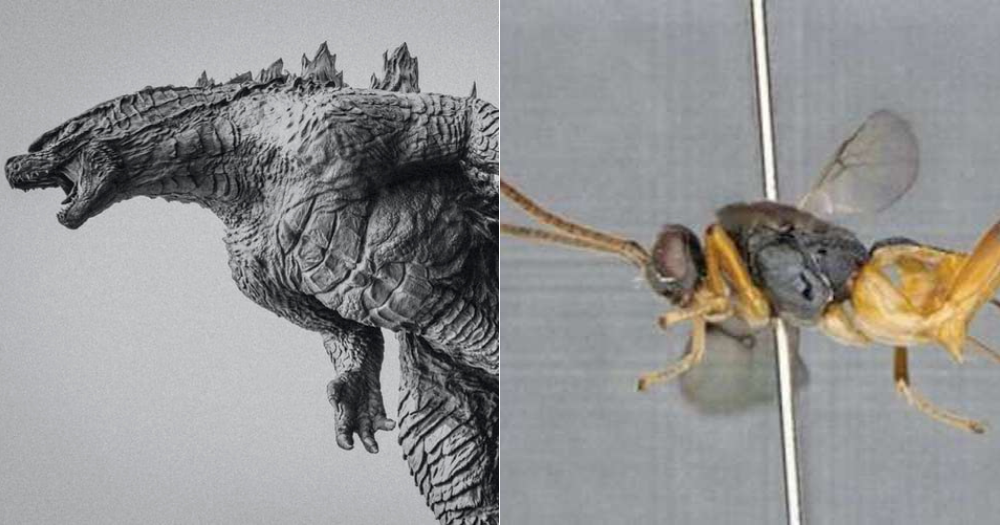A new species of parasitic wasp has been named after the fictional character, Godzilla, after it was observed to dive underwater to capture its host, a moth larvae.
Female wasp lays eggs in caterpillar host
The species, named Microgaster godzilla, which is black and yellow in colour and is found in Japan, dives underwater for a few seconds to remove its caterpillar host from the water.
The wasp species often searches for its host, which is the aquatic caterpillar of a moth species (Elophila turbata).
Once on the surface of the water, the female wasp deposits its eggs in the moth larvae, and lets go of its host, as seen in this video captured by researchers.
M. godzilla also has large and curved tarsal claws, which scientists believe could be helpful in gripping aquatic plants or objects in the water as it dives underwater to look for its hosts.
The study on the discovery of the species and their interesting behaviour was recently published to open-access scientific journal, Journal of Hymenoptera Research.
The group of insects which fall under Hymenoptera includes sawflies, wasps, bees, and ants.
Dr. Jose Fernandez-Triana, who is one of the authors of the study, explained to Eureka Alert that the team decided to name the Japanese species of wasp after the fictional monster (or kaiju) in the 1954 Japanese film as the wasp's behaviour "bears some loose resemblance" to the character, this is due to the wasp suddenly emerging from the water to parasitise the host, "similar to how Godzilla suddenly emerges from the water in the movies".
Another reason for the name is because Godzilla is often associated with another moth character, Mothra, which is often portrayed as a moth larva (or caterpillar), or an adult moth.
Parasitic behaviour in wasps are beneficial for pest control
While its behaviour may appear scary or cruel to some, parasitic wasps are important in controlling insect species, such as caterpillars, whitefly and scale insects.
According to BBC, wasps in the United Kingdom might account prey on an estimated amount of 14 million kilograms of insects across the summer, which reduces pest insect populations in gardens or crop plantations.
Wasps also play a role in pollination, as they visit flowers to drink nectar, reported BBC.
You can watch a video of the wasp's behaviour here.
Totally unrelated but follow and listen to our podcast here
Top images by jimmy2018/Unsplash and Jose Fernandez-Triana
If you like what you read, follow us on Facebook, Instagram, Twitter and Telegram to get the latest updates.
